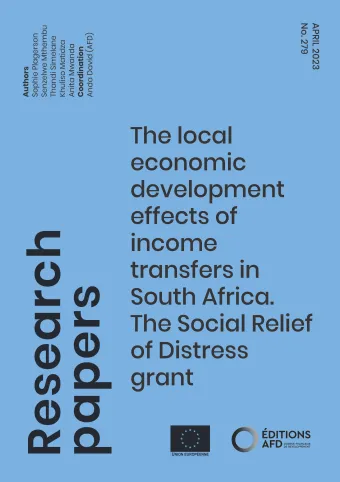Share the page
The local economic development effects of income transfers in South Africa. The Social Relief of Distress grant
Published on

Following the onset of COVID-19 in April 2020, this qualitative study considered the effects of the Social Relief of Distress (SRD) grant on local economies in five urban and peri-urban locations in South Africa, through the perspectives of informal traders. In a context of acute inequality, the SRD was introduced at a time of economic, health and social crisis due to the onset of COVID and measures implemented to limit its spread and was a key policy mechanism intended to ameliorate the differential effects of these measures on vulnerable groups.
Key findings from the study are that:
(i) widespread receipt of the SRD led to an increase in customer demand within local economies;
(ii) the SRD played a redistributive role by extending a social protection mechanism to previously excluded constituencies including informal workers and unemployed youth;
(iii) the SRD helped informal trader businesses survive and in some cases new businesses were initiated;
(iv) the SRD supported the circulation of people, goods and money and stimulated higher transaction intensity in different sectors (food and non-food) and across value chains;
(v) economic multipliers associated with the SRD included the ability to afford transport costs for traders and customers and the ability for traders to stock small items.
Although the SRD could not reverse the negative impacts of COVID-19, and cannot be considered a standalone intervention, it did function as an effective shock-responsive mechanism for households and local economies. The detection of economic multipliers in a time of emergency, signals the potential for a long term intervention that could be beneficial to local economies.
Useful Information
-
Authors
-
Sophie PLAGERSON, Senzelwe MTHEMBU, Thandi SIMELANE, Khuliso MATIDZA, Anita MWANDA
-
Edition
-
279
-
Number of pages
-
66
-
ISSN
-
2492 - 2846
-
Collection
-
Research Papers
